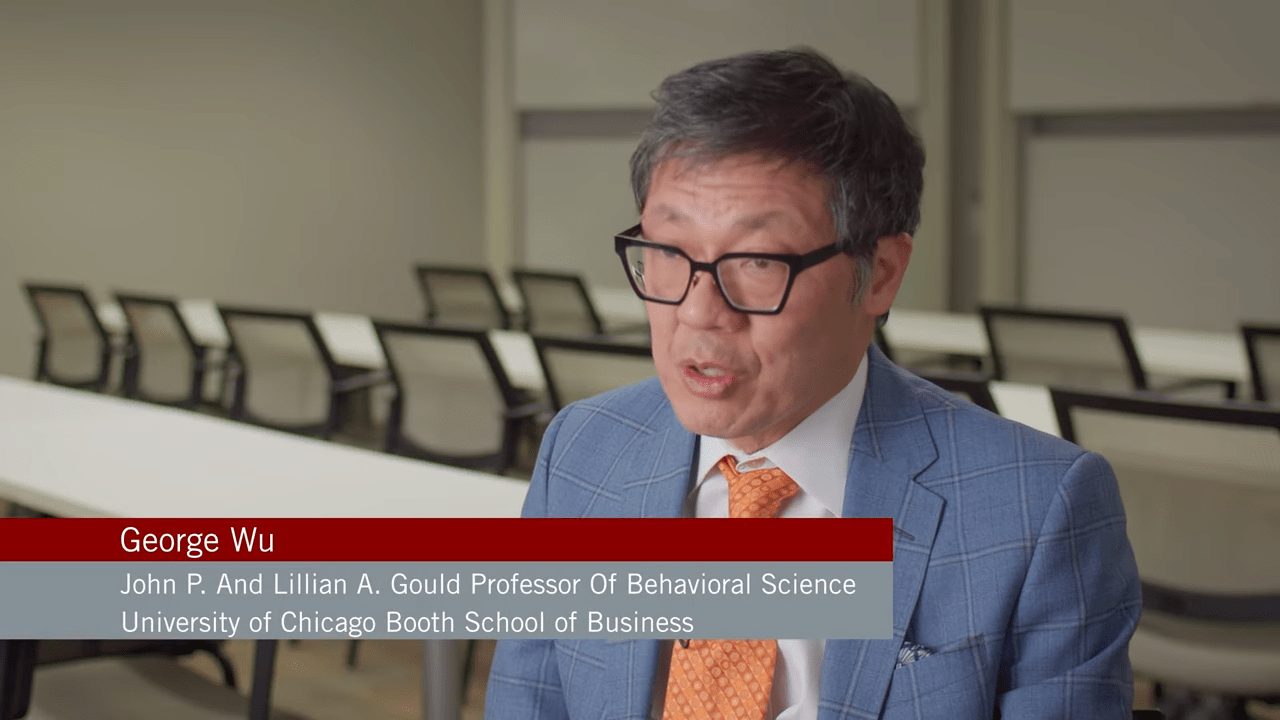Executive Decision-Making and Negotiations
Acquire the frameworks to improve your negotiation skills, influence for success, and enhance your decision-making processes.

Drawing on the latest research in the psychology of judgment, you will learn to improve your negotiation skills, your influence, and your decision-making process. You'll learn to recognize flaws in your negotiation and decision-making processes, develop frameworks for making sound decisions, and create a system to monitor, improve, and implement your skills. You'll learn how to negotiate hard, with integrity, using the basic influence techniques of professional negotiators. You'll also acquire techniques based on the latest advancements in the field of negotiation and decision strategy that will enhance your influence with your clients, vendors, employees and/or colleagues.
By attending this program, you will:
- Practice a systematic and insightful approach to negotiations and decision-making
- Monitor and improve your negotiation skills with personalized coaching and feedback from faculty
- Evaluate your performance across situations and people
- Learn how to adapt your negotiation approach to different situations and people
- Know what information is needed to negotiate effective outcomes
Location
Chicago Booth, Gleacher Center, Chicago IL
This program is designed to benefit middle, upper middle, and senior level managers, who would like to enhance their influence—both internally in their organizations and externally with other organizations and vendors—by improving their negotiation and decision-making skills.
Managers in every functional area of responsibility, in all industry types, will benefit by attending this program. In particular, executives in areas such as marketing, sales, manufacturing, engineering, mergers and acquisitions, purchasing, human resources, strategy, and finance, as well as general managers who have been promoted through these routes, will find this program highly beneficial.

George Wu
Prior to joining the Chicago Booth faculty in 1997, Wu was on the faculty of Harvard Business School as an assistant and associate professor in the managerial economics area and then in the negotiation and decision making group. He also has worked as a lecturer at Wharton School at the University of Pennsylvania. Prior to graduate school, Wu worked as a decision analyst at Procter Gamble.
Wu is a Department Editor of Management Science and is on numerous other editorial boards, including Decision Analysis, Journal of Behavioral Decision Making, Journal of Risk and Uncertainty, and Theory and Decision. He earned a bachelor's degree cum laude in applied mathematics with a concentration in decision and control in 1985, a master's degree in applied mathematics in 1987, and a PhD in decision sciences in 1991, all from Harvard.
Wu was honored as the 2020 recipient of the Chicago Urban League’s Humanitarian Award. You may read more about the award and the program here. He also received the Class of 2020 Emory Williams Award for Excellence in Teaching.

Ayelet Fishbach
Fishbach is an expert on motivation and decision making. Her groundbreaking research on human motivation has won the Society of Experimental Social Psychology's Best Dissertation Award and Career Trajectory Award, and the Fulbright Educational Foundation Award. She further received the Provost's Teaching Award from the University of Chicago.
Fishbach’s research has been published in many journals, including Nature, Psychological Review, Psychological Science, Journal of Consumer Research, Journal of Experimental Psychology: General, Journal of Marketing Research, and the Journal of Personality and Social Psychology. Her research is regularly featured in the media, including the New York Times, Financial Times, WSJ, CNN, and NPR.
Fishbach earned a bachelor's degree with distinction in psychology in 1992, a master's degree summa cum laude in psychology in 1995, and a PhD magna cum laude in psychology in 1999, all from Tel Aviv University. She joined the Chicago Booth faculty in 2002.
The Psychology of Judgment and Decision Making Processes
- Framing decisions and assessing uncertainty
- Seeking information to be more informed
- Managing uncertainty to manage risk
- Recognizing and overcoming biases
Beginning with the Toughest: Price Negotiation
- Negotiating hard with integrity
- Untangling relationship building and price negotiations
- Balancing assertiveness and empathy in negotiations
Techniques for Creating Value
- Identifying tools for uncovering the interests of negotiation partner
- Moving from zero-sum positions to mutually satisfying agreements
- Quantitative preparation techniques for measuring interests and trade-offs
Influence Techniques and Problem-Solving
- Adapting common influence tactics and defenses
- Leveraging creative problem-solving as a negotiation technique
Coalitions, Power, and Fairness
- Influencing outcomes when lacking formal authority
- Strategically forming and using coalitions to build power
- Confronting issues of equity within groups and coalitions
Organizational Decision-Making
- Preparing for complex negotiations by designing a productive process and agenda
- Managing joint decision-making and obtaining buy-in from large groups
Action Planning: Putting It All into Practice
- Construct your personal negotiation strategy in one-on-one expert consultations
- Synthesize all frameworks and hard skills developed during the week in a final multiparty negotiation exercise
I have undertaken a number of professional training courses involving negotiation skills. This one is the most comprehensive in terms of pulling together theory, psychology, and practical elements allowing for conducting a well-structured and potentially more successful negotiation in a variety of situations.
—Eric Davidson, VP, Asia-Pacific-Europe-Middle East-Africa, Modular Mining Systems
I think this session really allows for creating a level of self-awareness about your own style that you might have had. The topic, material, and faculty are world-class and a great investment on my part.
—Glenn O'Brien, Managing Director, Prudential Finance
I thought I knew a fair amount about negotiation before I took the course. I have been in commercial real estate for 25 years. This course taught me a lot about my negotiating strengths and weaknesses, how to improve and how to make a lot more deals!
—Joanne Stevens, NAI Iowa Realty
Content was relevant and eye-opening to carry back to the workplace. Instruction was engaging and paced well to keep energy up while allowing for questions and interaction from the attendees.
—Brian Loudy, District Sales Manager, Rohm and Haas Company
Very good level of intensity and fast-paced live negotiations. I like the 'uncovering' lecture style so that negotiations aren't overly skewed to the 'right' answer.
—Daniel Carbery, Sr. VP Operations, Endo Pharmaceuticals
The most incredible opportunity to bring world-class learning and leadership skills back to the non-profit sector. This is an opportunity that I would never have had, to learn from some of the world’s leading thinkers, and to take home processes and resources that are not likely available to a small, arts-based, community non-profit.
—Diana Moxon, Executive Director, Columbia Art League Office
Highly practical course driving concept to application. Business cases that progressively grew in complexity and demonstrate, as best as possible, real negotiation dynamics.
—Christopher Foster, Senior Financial Analyst, IBM
Excellent program with talented instructors.
—Christoffer Gronhoj, Director, PwC
How to prepare for a negotiation
We are all negotiators. Whether buying a home or acquiring a company, we all face situations that require working with another party to set terms that we find advantageous. Chicago Booth’s George Wu explains some of the good and bad practices that can determine how a negotiation will go and looks at some of the most common negotiation problems many of us face.
Advance Registration Benefit
When you commit your attendance by the specific expiration dates in 2025, you’ll benefit through financial savings. The savings will be automatically applied during the registration process. For more information, review our Advance Registration Benefits FAQs.
- June 23-27: $10,500 fee if registered by March 4.
This program typically runs once a year in the summer.